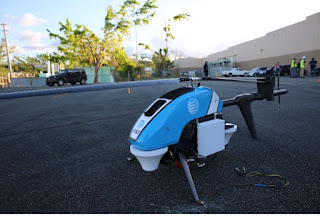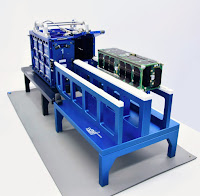The ARRL's recent actions regarding board elections, the code of conduct for board members and the public censure of a sitting director have prompted concern and editorial comment by CQ in the December 2017 and upcoming January 2018 issues. The following White Paper provides excerpts from both.
A CQ White Paper:
What is the ARRL So Afraid Of?
A string of recent actions by the ARRL board of directors has aroused concern among many members, as well as others in the amateur radio community, about its apparent desire to implement top-down control from Newington, to keep its deliberations secret and to stifle dissent, even among board members. We share those concerns.
CQ
has commented on this subject editorially in the past, and new actions have prompted us to comment again in both our December and January issues. While our December editorial is already online in our digital edition, the January editorial will not go online until January 1. Since the board's recent censure of one of its members for criticizing the board policy against criticizing its policies is currently being widely discussed in the amateur community, we felt that we needed to participate fully in that conversation now, not a month from now.
The following are excerpts from CQ's December 2017 and January 2018 "Zero Bias" editorials. The December issue closed prior to the board's censure action in mid-November. We begin with an excerpt from December's "Zero Bias":
ARRL: Circling the Wagons
Just what is the ARRL is afraid of? The League's top leadership appears to be continuing and expanding its efforts to centralize decision-making in Newington and to closely control the flow of information about the organization and its activities. In doing so, it is changing the nature of the organization and depriving members in certain divisions the opportunity to choose their representatives.
Historically, ARRL leadership volunteers around the country have been given a significant amount of autonomy in how they carry out their roles and in the relationships they build with local and regional leaders of served agencies. The staff in Newington served primarily as a resource, offering assistance as needed and guidance as requested. This made a lot of sense, as needs varied in different areas and a "one-size-fits-all" approach would not be effective.
Over the last year-and-half, though, that model of decentralized decision-making has been changing, as the League's new leadership has worked consistently to consolidate power and stifle dissent ... (Last year,) the League board's Elections and Ethics Committee disqualified a sitting director from seeking re-election, apparently based on actions taken after the ballots were already in the mail. Rather than cancelling the election and putting out a new call for nominations, however, the League simply declared that the director's opponent – a former director who had been defeated two years earlier for re-election – had been elected, although it was never clear just who elected him. Members in that division were never informed that their incumbent director had been disqualified, or why. It is noteworthy that this director was a strong proponent of greater openness in League decision-making; and the actions taken to keep him from seeking re-election were taken in secret.
This past January, the ARRL board codified that secrecy when it adopted a new "Policy on Board Governance and Conduct of Members…" This new policy required that directors and vice directors publicly support all actions taken by the board – even if they opposed those actions prior to their adoption – and prohibited them from disclosing any individual director's vote on a matter – even their own vote – without express board permission.
Next, this summer, the Elections and Ethics Committee was at it again, this time disqualifying a sitting vice director from running for director and again not telling the division's membership. Rather, there was only a cryptic statement in a news release that the incumbent director had "qualified for re-election." We have learned that the vice director was disqualified for allegedly failing to disclose a conflict of interest, but that when he asked for specifics about that supposed conflict, his requests were ignored. In addition, he requested a hearing by the full board on the disqualification – as he is allowed to do under the ARRL by-laws – but his request was denied. To the best of our knowledge, he has not yet been told what the alleged conflict was that prompted his disqualification.
Finally, as Hurricanes Harvey, Irma and Maria ravaged various parts of the Caribbean and US coasts, local ARRL Public Information Officers were essentially told not to talk with the media about ham radio activities but rather to direct all media inquiries to ARRL Headquarters (which, at the time, was without a media relations manager). In addition, headquarters shut down the League's public relations reflector, which had been a very useful tool for PIOs to compare notes and for Newington to provide guidance in their dealings with the media.
The impression one gets here is of an organization that perceives itself to be under siege and is circling the wagons to more effectively defend itself. But from whom? Who is the enemy? Its members? Its leadership volunteers who have devoted thousands of hours of personal time and more to carrying out their assigned roles? Its own elected officials who might not agree with actions taken by the majority of their colleagues? People seeking elected office who might disagree with the top leaders?
Just who is the enemy and what are the folks in Newington and on the board's executive committee so afraid of? And why all the secrecy? These are questions that League members need to ask themselves and their elected representatives; and they need to make sure they are not denied the right to vote for who those elected representatives will be. It's happened twice in the past year and a half; it's likely to happen again. How long will the members allow it to continue?
On November 14, the ARRL board voted, in a special meeting by teleconference, to censure Southwestern Division Director Dick Norton, N6AA, for allegedly publicly criticizing the board's policy that prohibits directors from criticizing board policy. The following is an excerpt from CQ's January "Zero Bias" editorial, addressing that decision and its impact.
Criticized for (Allegedly) Criticizing a Ban on Criticizing…
It's beginning to look like we're living in a ham radio version of a third-world dictatorship, at least as far as our national association is concerned. Last March, we took the ARRL to task for adopting a new code of conduct for board members. Among other things, it prohibited directors and vice-directors from publicly criticizing board actions and/or from disclosing individual votes on specific matters - even their own votes! - unless the board has specifically voted to make the votes public (got that?). At that time, we criticized this move toward institutionalized secrecy, noting that secrecy breeds suspicion and that, in a membership organization, the dues-paying members have a right to know what their elected representatives are doing on their behalf and with their money.
We later got an editorial "slap on the wrist" in QST for wondering just what goes on in League board meetings that requires such secrecy, noting that the ARRL is essentially a big ham radio club, not the National Security Council.
Now, it seems that longtime Southwestern Division Director Dick Norton, N6AA - who voted against the adoption of this code of conduct last January - has been formally censured by the League board for allegedly criticizing the code and its mandate of secrecy "at a public Amateur Radio gathering," an action reportedly taken in response to a complaint by an unidentified League member. (Other members attending the same public gathering reported that this never happened and that, in fact, Norton said he supported the League's policy.) The vote, taken in a special telephone session on November 14, was 11-to-3, with one abstention. (The full report of the meeting, including individual votes, is at <http://bit.ly/2jOJ3Zu>.)
The board said that Norton, by allegedly stating his opposition to the new policy, was "criticizing publicly the collective action of the Board of Directors adopting said Code of Conduct and drawing the Board's collective decision making into disrepute." The board resolution continued to say that Norton's criticism of this policy had "caused harm to the League" and constituted "unacceptable behavior as an ARRL Board member."
Bull.
This action by the League board - not any statements by an individual member - is what is causing "harm to the League" and "drawing the Board's collective decision making into disrepute." This is America, folks. Our nation is built on traditions of free speech and the freedom to dissent, to publicly criticize the government and to speak truth to power.
Imagine if votes in Congress were secret and members could be censured for speaking out in opposition to a bill once it had been passed and signed into law. This is the equivalent on a smaller scale.
No, the ARRL is not a government body, so the free speech and dissent protections of the Bill of Rights do not strictly apply. But it is, in theory at least, a democratic organization governed by the members' elected representatives. The members have an absolute right to know how their representatives are voting on matters that come before them. How else would you know whether your representative is voting in your best interest and whether you should vote to re-elect that person when his/her term is up?
(Interestingly, it has been pointed out to us that a majority of the current League board members have not actually been elected, but rather have been either appointed to fill a vacancy or put into/kept in office by virtue of potential opponents being disqualified from running, sometimes on very questionable grounds and, again, shrouded in secrecy.)
We will say this again, at risk of being censured ourselves: The ARRL is not the National Security Council. None of the matters that come before the League board are so sensitive that they require absolute secrecy. Prohibiting dissent, and prohibiting elected representatives from discussing their views and their votes with their constituents is un-American. Elected representatives should, in nearly all cases, be elected rather than appointed ... Excessive secrecy and punishment for dissent are undemocratic and un-American; they should not be tolerated by the members of an organization that operates in that manner.
Click here to view the complete text of our December editorial which is also, of course, in the December issue of
CQ. The full text of the January editorial will be posted at the beginning of January and published in the January issue of
CQ.
CQ Amateur Radio, 17 West John Street, Hicksville, NY 11801
www.cq-amateur-radio.com





















